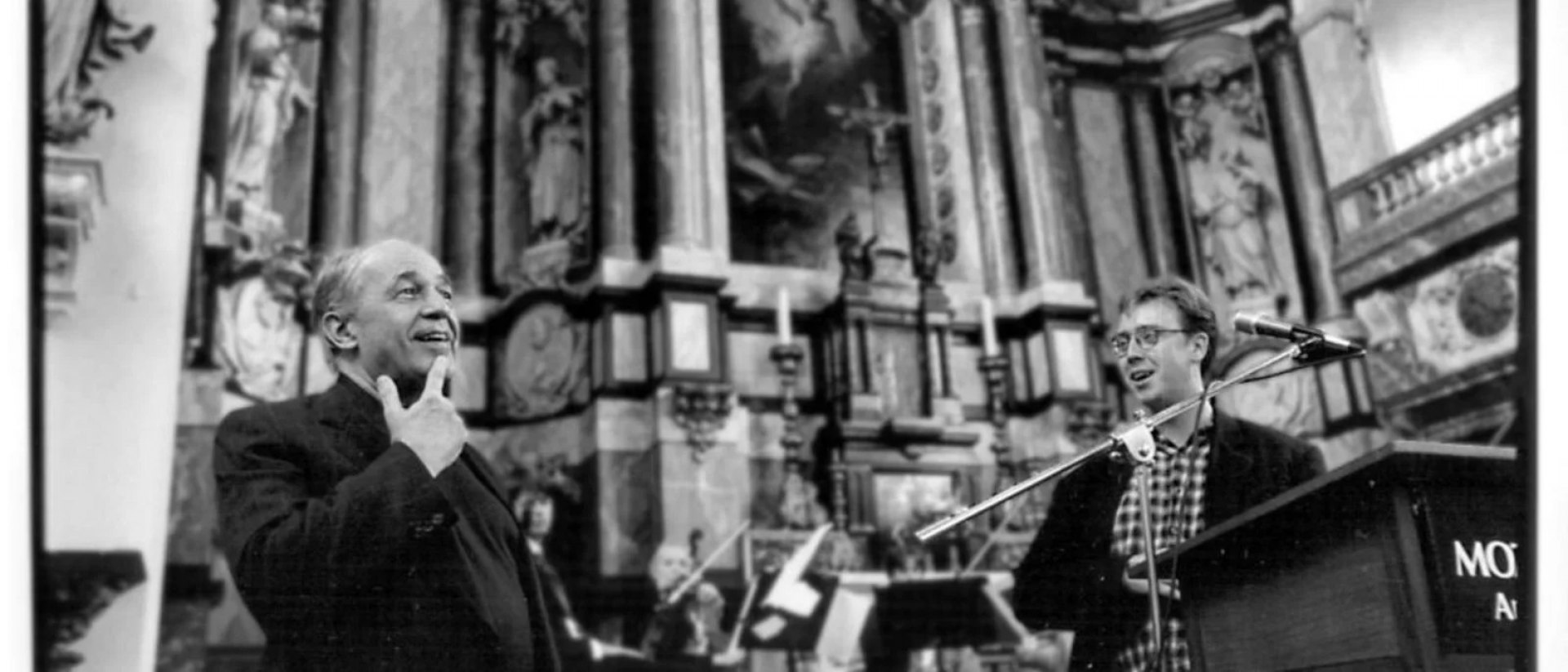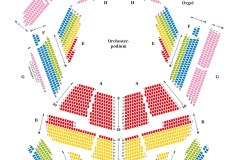Netherlands Radio Philharmonic Orchestra
August 2025 | ||||||
|---|---|---|---|---|---|---|
Mo | Tu | We | Th | Fr | Sa | Su |
Musikfest Berlin
The Netherlands Radio Philharmonic Orchestra and the Netherlands Radio Choir under the direction of Chief Conductor Karina Canellakis invite you to join them on an intimate sound experience rich in contrasts. The programme takes us through the cycle of life and the great questions that confront us in the course of our sojourn on this planet. At the age of 22, Pierre Boulez composed his cantata “Le soleil des eaux”; it was at the same age that Boulez’ teacher Olivier Messiaen wrote his first orchestral work “Les offrandes oubliées”. The two young composers strike out on their pioneering metaphysical path through new worlds of sound – now lyrically floating, now forcefully. For his part, Sergei Rachmaninoff has his feet on the ground in his last composition as he looks back at his past life almost with nostalgia: triumphal exultation and threatening undertones, the nimble feet of a dancer and the brooding weight of symphonic writing – in his “Symphonic Dances”, Rachmaninoff summons up a galaxy of the highlights that enrich life on earth.
Program and cast
Netherlands Radio Philharmonic Orchestra
Karina Canellakis, conductor
Liv Redpath, soprano
Netherlands Radio Choir, choir
Benjamin Goodson, chorus master
Programme
Olivier Messiaen
Les Offrandes oubliées
Liv Redpath soprano, Netherlands Radio Choir choir, Benjamin Goodson chorus master
Pierre Boulez
Le Soleil des eaux for soprano, mixed choir and orchestra after two poems by René Char
Liv Redpath soprano, Netherlands Radio Choir choir, Benjamin Goodson chorus master
Robin de Raaff
L’Azur, Cantata for choir and orchestra on the poem by Stéphane Mallarmé
Liv Redpath soprano, Netherlands Radio Choir choir, Benjamin Goodson chorus master
Sergei Rachmaninoff
Symphonic Dances, op. 45
Berliner Philharmonie
The Berliner Philharmonie is a concert hall in Berlin, Germany. Home to the Berlin Philharmonic Orchestra, the building is acclaimed for both its acoustics and its architecture.
The Philharmonie lies on the south edge of the city's Tiergarten and just west of the former Berlin Wall, an area that for decades suffered from isolation and drabness but that today offers ideal centrality, greenness, and accessibility. Its cross street and postal address is Herbert-von-Karajan-Straße, named for the orchestra's longest-serving principal conductor. The neighborhood, often dubbed the Kulturforum, can be reached on foot from the Potsdamer Platz station.
Actually a two-venue facility with connecting lobby, the Philharmonie comprises a Großer Saal of 2,440 seats for orchestral concerts and a chamber-music hall, the Kammermusiksaal, of 1,180 seats. Though conceived together, the smaller venue was added only in the 1980s.
By subway (U-Bahn):
Lines U2 (Bahnhöfe Potsdamer Platz or MendelssohnBartholdy-Park)
By city train (S-Bahn):
Lines S1, S2, S25 (Potsdamer Platz)
By regional train:
Lines RE3, RE4, RE5 (Potsdamer Platz)
By bus directly to the Philharmonie:
Lines 200 (Philharmonie), M48, M85 (Kulturforum or Varian-Fry-Straße),
Further bus lines: M29 (Potsdamer Brücke), M41 (Potsdamer Platz)
By car:
A limited number of parking spaces are available on the Philharmonie property. Please use the parking garages under the Sony Center and under the Potsdamer Platz Arkaden (Entrance at Reichpietschufer).
By bycicle:
A limited number of bycicle stands are available on front and behind the Philharmonie. Additional stands can be found in front of the State Library (Staatsbibliothek) across the street.

 EN
EN DE
DE IT
IT FR
FR ES
ES RU
RU JP
JP RO
RO
 Seating plan
Seating plan